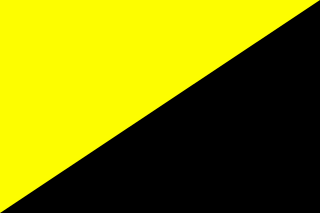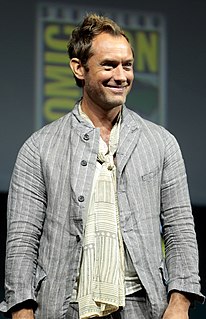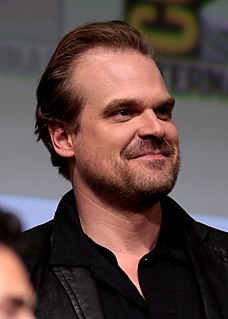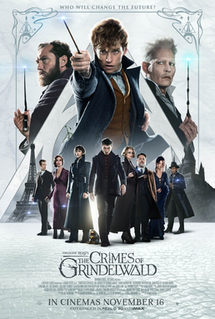See also
| This disambiguation page lists articles about people with the same name. If an internal link led you here, you may wish to change the link to point directly to the intended article. |
David Laws is a civil servant.
David Laws may also refer to:
| This disambiguation page lists articles about people with the same name. If an internal link led you here, you may wish to change the link to point directly to the intended article. |

Anarcho-capitalism is a political philosophy and school of anarchist thought that advocates the elimination of centralized state dictum in favor of self-ownership, private property and free markets. Anarcho-capitalists hold that in the absence of statute, society tends to contractually self-regulate and civilize through the spontaneous and organic discipline of the free market.

Comparative law is the study of differences and similarities between the law of different countries. More specifically, it involves the study of the different legal "systems" in existence in the world, including the common law, the civil law, socialist law, Canon law, Jewish Law, Islamic law, Hindu law, and Chinese law. It includes the description and analysis of foreign legal systems, even where no explicit comparison is undertaken. The importance of comparative law has increased enormously in the present age of internationalism, economic globalization, and democratization.

David Director Friedman is an American economist, physicist, legal scholar, and libertarian theorist. He is known for his textbook writings on microeconomics and the libertarian theory of anarcho-capitalism, which is the subject of his most popular book, The Machinery of Freedom. Besides The Machinery of Freedom, he has authored several other books and articles, including Price Theory: An Intermediate Text (1986), Law's Order: What Economics Has to Do with Law and Why It Matters (2000), Hidden Order: The Economics of Everyday Life (1996), and Future Imperfect (2008).

Human rights are "the basic rights and freedoms to which all humans are entitled" Examples of rights and freedoms which are often thought of as human rights include civil and political rights, such as the right to life, liberty, and property, freedom of expression, pursuit of happiness and equality before the law; and social, cultural and economic rights, including the right to participate in science and culture, the right to work, and the right to education.
All human beings are born free and equal in dignity and rights. They are endowed with reason and conscience and should act towards one another in a spirit of brotherhood.
The Seven Laws of Noah, also referred to as the Noahide Laws or the Noachide Laws, are a set of imperatives which, according to the Talmud, were given by God as a binding set of laws for the "children of Noah" – that is, all of humanity.

David Boies is an American lawyer and chairman of the law firm Boies, Schiller & Flexner. He has been involved in various high-profile cases in the United States, including United States v. Microsoft Corp., Bush v. Gore, Hollingsworth v. Perry, representation of Theranos and the defense of Harvey Weinstein against sexual abuse allegations.

The U.S. Securities and Exchange Commission (SEC) is an independent agency of the United States federal government. The SEC holds primary responsibility for enforcing the federal securities laws, proposing securities rules, and regulating the securities industry, the nation's stock and options exchanges, and other activities and organizations, including the electronic securities markets in the United States.

In physics, Gauss's law, also known as Gauss's flux theorem, is a law relating the distribution of electric charge to the resulting electric field. The surface under consideration may be a closed one enclosing a volume such as a spherical surface.

The Juris Doctor degree, also known as the Doctor of Jurisprudence degree, is a graduate-entry professional degree in law and one of several Doctor of Law degrees. The Juris Doctor is earned by completing law school in Australia, Canada, the United States, and some other common law countries. It has the academic standing of a professional doctorate in the United States, a master's degree in Australia, and a second-entry, baccalaureate degree in Canada.
Public policy is the principled guide to action taken by the administrative executive branches of the state with regard to a class of issues, in a manner consistent with law and institutional customs.

David Jude Heyworth Law is an English actor. He has received nominations for two Academy Awards, two Screen Actors Guild Awards, four Golden Globe Awards, and two British Academy Awards (BAFTAs), winning one. In 2007, he received an Honorary César and was named a knight of the Order of Arts and Letters by the French government, in recognition of his contribution to World Cinema Arts.

A strikebreaker is a person who works despite an ongoing strike. Strikebreakers are usually individuals who were not employed by the company prior to the trade union dispute, but rather hired after or during the strike to keep the organization running. "Strikebreakers" may also refer to workers who cross picket lines to work.
Fourteen Words, 14, or 14/88, is a reference to the fourteen-word slogan “We must secure the existence of our people and a future for white children,” or less commonly "Because the beauty of the White Aryan woman must not perish from the earth." The slogans were originally coined by white supremacist David Lane, a founding member of the terrorist organization The Order. The terms were coined while he was serving a 190-year sentence in federal prison for his role in violating the civil rights of Jewish talk show host Alan Berg, who was murdered by another member of the group in June 1984. The slogans were publicized through now-defunct 14 Word Press, founded in 1995 by Lane's wife to disseminate her husband's writings.

The Ten Commandments, also known as the Decalogue, are a set of biblical principles relating to ethics and worship, which play a fundamental role in Judaism and Christianity. The commandments include instructions to worship only God, to honour one's parents, and to keep the sabbath day holy, as well as prohibitions against idolatry, blasphemy, murder, adultery, theft, dishonesty, and coveting. Different religious groups follow different traditions for interpreting and numbering them.

David Kenneth Harbour is an American actor. He is best known for his role as Jim Hopper in the Netflix science fiction horror series Stranger Things (2016–present), which has earned him a Critics' Choice Television Award in 2018. He has also received Primetime Emmy Award and Golden Globe Award nominations for the role.

Law is a system of rules that are created and enforced through social or governmental institutions to regulate behavior. It has been defined both as "the Science of Justice" and "the Art of Justice". Law is a system that regulates and ensures that individuals or a community adhere to the will of the state. State-enforced laws can be made by a collective legislature or by a single legislator, resulting in statutes, by the executive through decrees and regulations, or established by judges through precedent, normally in common law jurisdictions. Private individuals can create legally binding contracts, including arbitration agreements that may elect to accept alternative arbitration to the normal court process. The formation of laws themselves may be influenced by a constitution, written or tacit, and the rights encoded therein. The law shapes politics, economics, history and society in various ways and serves as a mediator of relations between people.
Jim Crow laws were state and local laws that enforced racial segregation in the Southern United States. All were enacted in the late 19th and early 20th centuries by white Democratic-dominated state legislatures after the Reconstruction period. The laws were enforced until 1965. In practice, Jim Crow laws mandated racial segregation in all public facilities in the states of the former Confederate States of America, starting in the 1870s and 1880s, and were upheld in 1896, by the U.S. Supreme Court's "separate but equal" legal doctrine for facilities for African Americans, established with the court's decision in the case of Plessy vs. Ferguson. Moreover, public education had essentially been segregated since its establishment in most of the South, after the Civil War (1861–65).
Sibling-in-law is a word phrase referring to the sibling of one's spouse, or the spouse of one's sibling, or taken one step further by referring to the spouse of one's spouse's sibling. All of these are relations which do not relate to the person directly by blood. Alternatively, the spouse of your spouse's sibling may be called a co-sibling-in-law, or co-sibling.

Fantastic Beasts: The Crimes of Grindelwald is a 2018 fantasy film directed by David Yates and written by J. K. Rowling. A joint British and American production, it is the sequel to Fantastic Beasts and Where to Find Them (2016). It is the second instalment in the Fantastic Beasts film series, and the tenth overall in the Wizarding World franchise, which began with the Harry Potter film series. The film features an ensemble cast that includes Eddie Redmayne, Katherine Waterston, Dan Fogler, Alison Sudol, Ezra Miller, Zoë Kravitz, Callum Turner, Claudia Kim, William Nadylam, Kevin Guthrie, Jude Law, and Johnny Depp. The plot follows Newt Scamander and Albus Dumbledore as they attempt to take down the dark wizard Gellert Grindelwald, while facing new threats in a more divided wizarding world.

David T. Lametti is a Canadian legal scholar and Liberal politician. He was a Professor of Law at McGill University, a member of the Institute of Comparative Law, and a founding member of the Centre for Intellectual Property Policy (CIPP). Lametti was elected as the Member of Parliament for the riding of LaSalle—Émard—Verdun in the 2015 Canadian federal election. He was sworn in as the 52nd Minister of Justice and Attorney General of Canada on January 14, 2019.